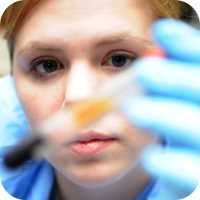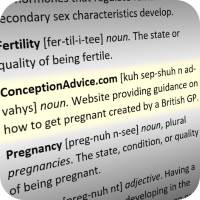 Not all fertility clinics are created equal. Some have better success rates, some specialise in certain conditions, some don’t accept certain groups of people, and a few clinics will try to rip you off.
Not all fertility clinics are created equal. Some have better success rates, some specialise in certain conditions, some don’t accept certain groups of people, and a few clinics will try to rip you off.
Pick the right one and you’ll have a stress-free experience and a bundle of joy. Pick the wrong one and you could put your health at risk, be out of pocket and have nothing to show for it.
Given what’s at stake, choosing the right fertility clinic is arguably one of the most important choices you’ll ever make. But with literally hundreds to choose from, how do you make that choice?
This is why I have created the How to Choose a Fertility Clinic guide, to help you make that decision with confidence. It contains advice collected from fellow doctors, feedback from patients and my own personal experience with fertility treatment. Here’s a taste of what’s to come:
- How to find clinic comparisons, what the statistics mean and why picking the clinic with the highest success rate is not always your best option
- How to find clinics and doctors that specialise in treatment of specific conditions
- Why some clinics have eligibility rules that may prejudice against you
- Why travel time to and from a clinic can affect the costs, your comfort, your job and the treatment success
- The benefits and drawbacks of choosing a fertility clinic abroad
- Tips and tricks for making your final decision
Fertility clinic regulation

Do you want to be treated according to a set of high standards? Is your safety important to you? If so, make sure any fertility clinic you pick is registered with an independent regulator.
Not only do regulators police the fertility clinics to make sure they are safe and ethical, they often list all the fertility clinics in your country along with their success rates and other useful statistics. This makes them invaluable sources of information for when you do your research into the clinics in your area.
If you live in the UK, the clinic regulator is the Human Fertilisation & Embryology Authority (HFEA) and you can visit their website here: www.hfea.gov.uk. To find who regulates fertility treatment in your area, Google “Assisted Reproduction Regulator” and the name of your country or state.
Unfortunately, not all countries have specific regulators for fertility treatment (though following a string of scandals, there have been calls for greater regulation in these countries). In these cases, make sure the fertility clinic is at least registered with the country’s Department or Ministry for Health.
Fertility clinic success rates

A fertility clinic’s success rate, also known as a “Live Birth Rate”, shows how successful a clinic has been at helping couples have a baby. It is usually the first thing that couples look at, but as I am about to show you, it can be misleading.
The first thing to understand is that a clinic’s success rate shows how successful it is overall. It is not an indication of what chance you personally have if you go with that clinic.
Then you need to understand that success rates can be affected by other factors such as the eligibility rules clinics have, the number of embryos they implant, the number of people the see, and if they specialise in certain conditions. This can be confusing at first, so I will go into each of these factors in turn.
Fertility Clinic Eligibility Rules
Some clinics make up their own rules such as not accepting couples who:
- Smoke
- Are overweight
- Are over a certain age
- Where the woman has low egg reserves (ovarian reserve)
- Where one of the couple has already had children with another partner
By not accepting these couples (and potentially others), they are stacking the odds in their favour and may show a higher success rate than clinics that accept everyone. But it doesn’t mean that they are better. Furthermore, if you fit into a category that the clinic rules against, then they are unlikely to accept taking you.
Multiple Rates
The multiple rate is the number of women who become pregnant and give birth to more than one baby at a time, i.e. have twins, triplets or even quadruplets. Clinics that have a high multiple rate often implant more embryos at a time than clinics with low multiple rates. The more embryos implanted, the higher the chance that one or more will develop into babies. This in turn causes the clinic to have a higher success rate.
While having twins or triplets may seem like a good idea to get the family completed all in one go, there are increased risks for both the babies and the mothers. Being pregnant with two or more babies at the same time increases the likelihood of preterm births, placental problems, preeclampsia, diabetes, as well as other less common problems.
Because of this, good clinics usually have a high success rate and a low multiple rate.
Fertility Clinic Specialisation
Some clinics specialise in helping people with certain conditions like polycystic ovary syndrome or male autoimmune response to sperm. Because these clinics are more popular with couples that have a lower chance of conception, they can find their success rates lower than clinics who get less of these couples. If you have a particular condition and would like to find a clinic that specialises in it, I cover that later on.
Furthermore, not all fertility clinics offer the same treatment done in the same way. For example, IVF treatment (the most popular fertility treatment), is performed by some clinics with reduced amounts of drugs (Mild IVF) or even no drugs at all (Natural IVF). These have slightly lower success rates, but they are much better for the woman as they tend to have reduced rates of Ovarian Hyper-Stimulation Syndrome (OHSS).
Small Samples Sizes Can Be Less Accurate
Some clinics have much larger patient numbers than others and this can work for or against them. For example, Clinic A has 100 couples and 55 of them become pregnant. This gives Clinic A a success Rate of 55%. However, Clinic B only has 10 couples and 6 of them get pregnant. This gives Clinic B a success Rate of 60%.
If you just went by the percentages, it would look like Clinic B was the best with a success rate of 10% more than clinic A. However, because of the numbers involved, this may not be very accurate. This is because large numbers usually indicate a more consistent statistic. This does not mean a clinic with a larger number of couples is better though, just that it’s statistics are likely to be more reliable.
So, in practical terms, if you see a fertility clinic with a suspiciously high success rating, check to see how many patients it has seen. If it’s only a few, that rating may not be accurate.
Fertility clinic specialisations

As I mentioned in the earlier section, some fertility clinics specialise in helping couples with particular conditions. If you know the reason you are not getting pregnant, then it may be beneficial to seek out a clinic that specialises in that condition for their experience and expertise in that area.
Start by looking at clinics websites, as they will often advise you if they specialise and what they specialise in. But if you can’t find a clinic that specialises in your specific condition, then don’t give up just yet.
The individual doctors and fertility practitioners that work at the clinics often specialise in particular areas (for example, I specialise in both fertility and palliative care). If you like the look of a particular clinic, try googling the people who work there to see if they have specialised or written papers on your condition. If you find someone who has, you can ask the clinic if you can be seen by them.
Fertility clinic location

So you’ve found your perfect clinic, but it is not close by. Before you sign up with them, consider the following:
• How will you travel to the clinic, what travel costs are involved and do you need to factor these into your budget
• Treatments like IVF can be a very emotional experience, so travelling halfway across a country may not be in your best interests
• You may be required to visit the clinic regularly or during the week, so is your job flexible enough to allow you the time off work to do the travelling involved
• You may feel some discomfort after treatment, so a long journey might make you feel worse
• Stress and anxiety from travelling, costs, discomfort and worrying about your job can be a factor in treatment success, how will you manage this if it becomes a problem?
If these are a problem for you, weigh up the pros and cons before you decide to go with a clinic that is a long distance away from you.
Fertility clinics abroad

While searching for fertility clinics, you are bound to come across clinics advertising in your country that are based abroad. The appeal of these clinics is that they are often a lot cheaper or offer services that are not available in your country, like choosing the gender of your child (this is often not because parents want “Designer Babies”, but something that some parents choose in order to avoid passing gender-linked genetic disorders to their children).
If you decide that you would like to investigate the options for having fertility treatment abroad, then consider the following:
• What rules and regulations does that country have for fertility treatment? For example, many countries have donor eggs and sperm anonymity – this is not the same as in the UK, where a child can find out who their genetic parent is later in life
• How would you travel there, how often would you have to travel?
• How much does the travelling cost? Remember that flight costs can vary, especially by time of year, leading to higher costs than expected
• Is there an independent regulator you can contact if things go wrong?
• Do they have staff that speak your language and that you feel you can communicate well with?
• Does the clinic have an office or support in your country that you can contact?
• Can you get the scans done in your country to save on unnecessary travelling costs?
• Could there be additional hidden costs? Not all countries insist clinics provide a Treatment Plan
Do your homework and you may find that treatment abroad could be a cheaper way for you to get pregnant.
Fertility counselling services
Fertility treatment can be very emotionally challenging, so you should consider counselling to help you through the process. Some clinics provide patient support groups. If they don’t, you can find groups by doing a google search for them in your area. If you live in the UK, you can visit www.infertilitynetworkuk.com.
Remember that stress can be a factor in your chances of conceiving and there is no shame in seeking help to overcome it.
What else should you consider when choosing a fertility clinic?
Timings
Some clinics are busier than others, so if you would prefer to receive fertility treatment sooner rather than later, you should ask the clinics the following questions:
- When can I get an appointment?
- Will I need more tests and how long between waits?
- When could you start treatment?
- How long are waiting times for donor eggs and sperm?
Continuity
Do you get to see the same person each time or will you see different people each time you go? For some people seeing a different person each time they visit won’t be an issue. While others prefer consistency and getting to know the person who is treating them. If you want to make sure you see the same person throughout your treatment, clarify this with the clinic.
Cycle Definition
Not all clinics follow the same definition of a cycle. To quote UK guidelines: “The definition of a single full treatment cycle is the replacement of a fresh embryo and subsequent replacement of all the frozen embryos derived from that cycle.”
What that means in practical terms is that if the first go at IVF is unsuccessful and you don’t become pregnant, then any embryos produced from the initial egg collection that weren’t transferred can then be transferred at a later date. This should be classified as one cycle of IVF treatment.
However, some clinics may charge you for this second transfer as they claim that this is a new cycle of IVF treatment. This is despite you not having to go through another course of drugs or having the embryos harvested again.
How to choose a fertility clinic

The first thing you should do is write down a list of everything you personally need to consider when choosing a fertility clinic. Like working out what budget you can afford, if there is a specific treatment type you would like (IVF is not the only treatment available), how far you are willing to travel, how it could it affect work, etc. This combined with the information in the How to Choose a Fertility Clinic guide will help you make a baseline for your decision.
Once you have your list of requirements, start looking up fertility clinics on the web (TIP: if your country has an independent regulator, their website can make this easier for you). Using the criteria in your list, try to narrow down the selection of fertility clinics to a top two or three.
Once you have your two or three that meet your criteria and sound good, go along to their open days to see if you like them. If they don’t have open days, ask if you can have a free consultation with them.
While at the open day or consultation, note down what they tell you, what you liked about them and what you didn’t like about them. Then score each clinic on how you think they did.
Once you have done your research and found a clinic that you like, there are some final checks you can make to ensure it is the right clinic for you:
- Ask your friends that have children if they or someone they know has used the fertility clinic you are looking at to see if you can get a personal recommendation
- Ask the clinic if they do open days so you visit them and see if you like the facilities and staff
- Finally, and possibly most importantly; Does it feel right for you and do you feel comfortable selecting it for yourself? Fertility treatment is very emotional and it is important you pick a clinic where you feel happy and relaxed.
Having gone through this process, you should feel happy and confident in picking a fertility clinic is right for you.
What more do I need to know about fertility treatment?
There is more to fertility treatment than just picking a clinic. If you are just starting out, I recommend you check out the section: A Beginners Guide to Private Fertility Treatment. It is a step by step guide about who to see, how a correct diagnosis increases your chances, understanding treatment plans, and how to find the best treatment for you.
Fertility clinics are businesses and like any other area of business, there are a few individuals that are more interested in lining their pockets than in helping you. Learn about how to avoid unnecessary costs and treatments in the section: How to Avoid Being Ripped Off by Fertility Clinics
Links to Popular Related Pages









